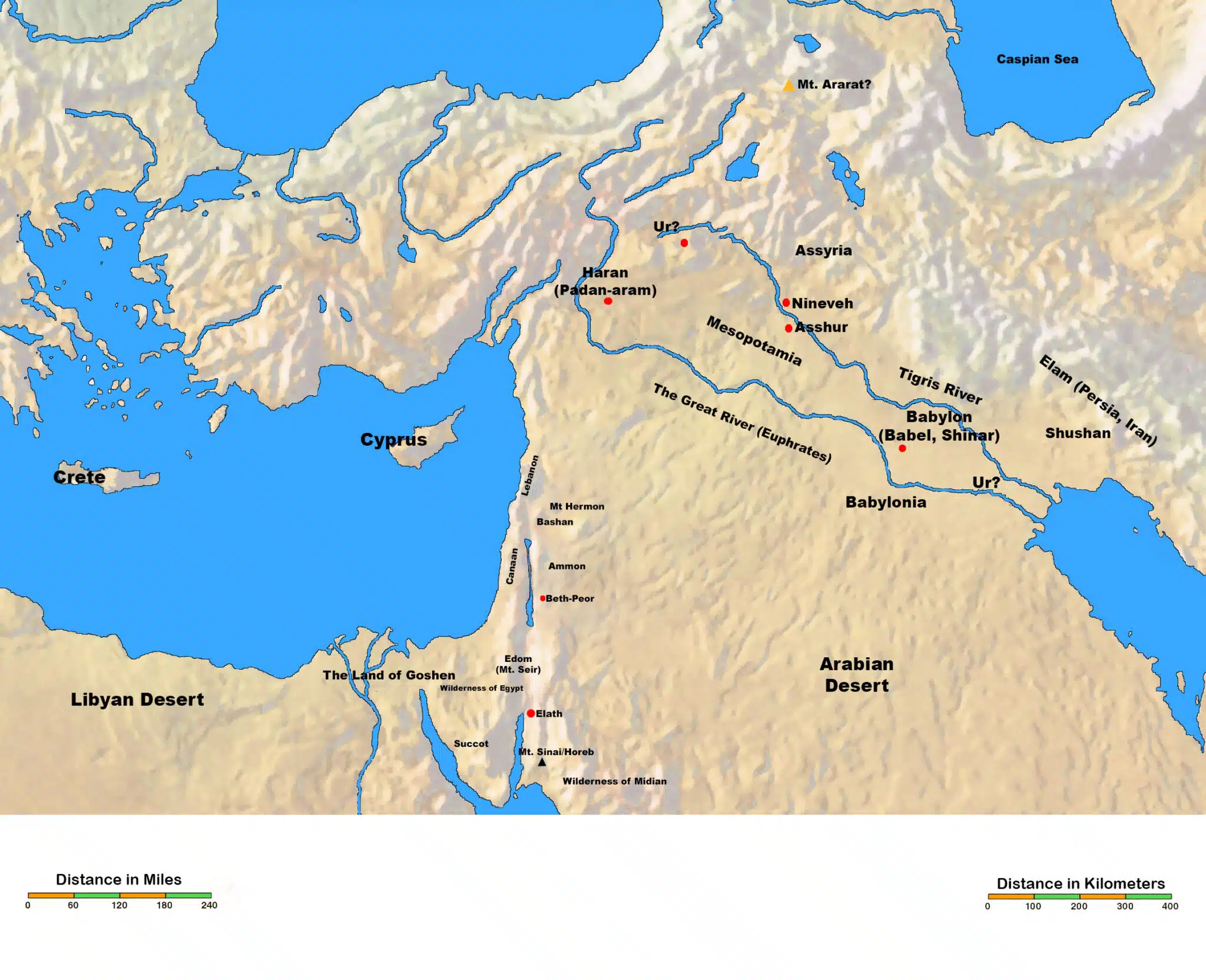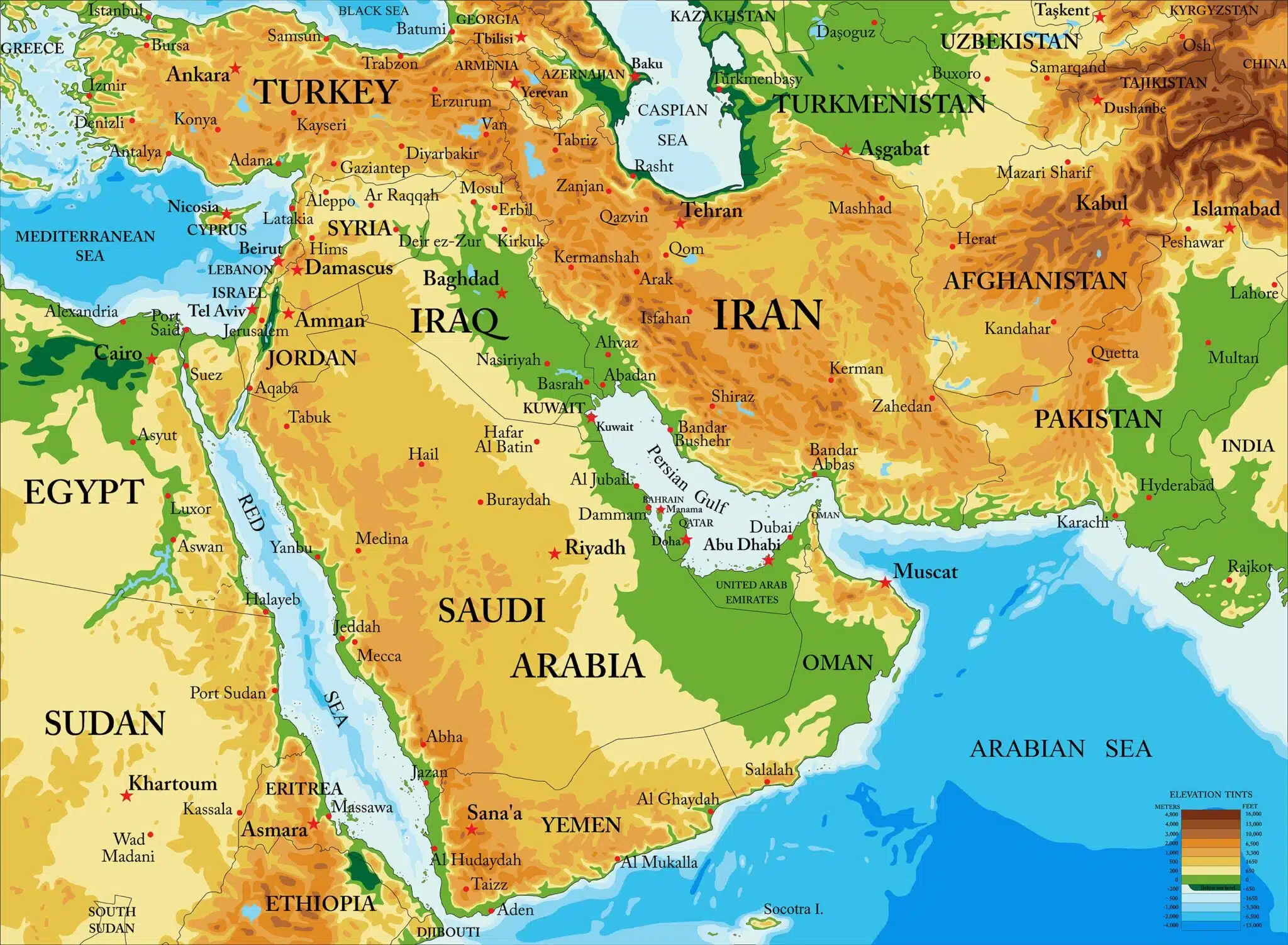Ephron heard Abraham’s offer and replies that he is willing to give the land, including the cave, to Abraham for free.
Ephron the Hittite was present for this meeting, for he was sitting among the sons of Heth.
Ephron answered Abraham in a loud, clear voice, so that the sons of Heth heard. In fact, all who entered the gate of his city heard Ephron’s reply to Abraham. This clarifies where the meeting was taking place: the gate of the city. In the ancient world, the city gate was a meeting place. Civics and business were conducted there: purchases, transactions, or judgements. It was a public spot and a convenient location for anyone in the community to make deals and settle disputes. It is interesting that we are told that it is his city, referring to Ephron. He is clearly a wealthy, powerful man.
Ephron’s reply is described as being public and witnessed by many people there at the gate, No, my lord, listen to me; I give you the field, and I give you the cave that is in it. In the presence of the sons of my people I give it to you; bury your dead.”
The fact that there were many people present, the sons of Ephron’s people, is to highlight the legitimacy and public nature of this interaction. Rather than written contracts, legal transactions relied upon public witness, and the city gate was the traditional place to conduct such business. We see this in Boaz’ redemption of Naomi’s property in the book of Ruth (Ruth 4).
Ephron boasts generosity, and offers to give Abraham the field and the cave as a gift. This is likely a traditional way of opening a bargaining session at the time.
Abraham does not accept this offer. It probably would have been culturally objectionable to accept the offer. In the following passage, we see that he is firm in his goal to buy the land and conclude the negotiation. We will see further that Abraham does not really bargain for the land, but accepts the asking price. This is likely one reason he was esteemed by the local population.
Biblical Text
10 Now Ephron was sitting among the sons of Heth; and Ephron the Hittite answered Abraham so that the sons of Heth heard, that is, all who entered the gate of his city, saying, 11 “No, my lord, listen to me; I give you the field, and I give you the cave that is in it. In the presence of the sons of my people I give it to you; bury your dead.”
Check out our other commentaries:
-
What is Hell? Gehenna and the Outer Darkness meaning
Gehenna and the Outer Darkness are cultural illustrations that describe the shame-filled, bitter, sorrowful experience of a believer in Jesus at his judgment if he...... -
Zechariah 6:1-8 meaning
Zechariah sees four chariots emerging from between two bronze mountains. The angel speaking with him identifies the chariots as four spirits of heaven who go...... -
Zechariah 2:1-5 meaning
In his third vision, Zechariah sees a surveyor who is about to mark out the boundaries of Jerusalem to prepare for rebuilding the city’s walls....... -
Amos 9:7-10 meaning
The Suzerain God dismisses Israel’s arrogance and false confidence in themselves and says that He will shake the sinners of His people and kill them...... -
Acts 5:17-21a meaning
The Sadducees are angered by the apostles’ ministry in the temple and have them arrested. An angel frees the apostles during the night and tells......




